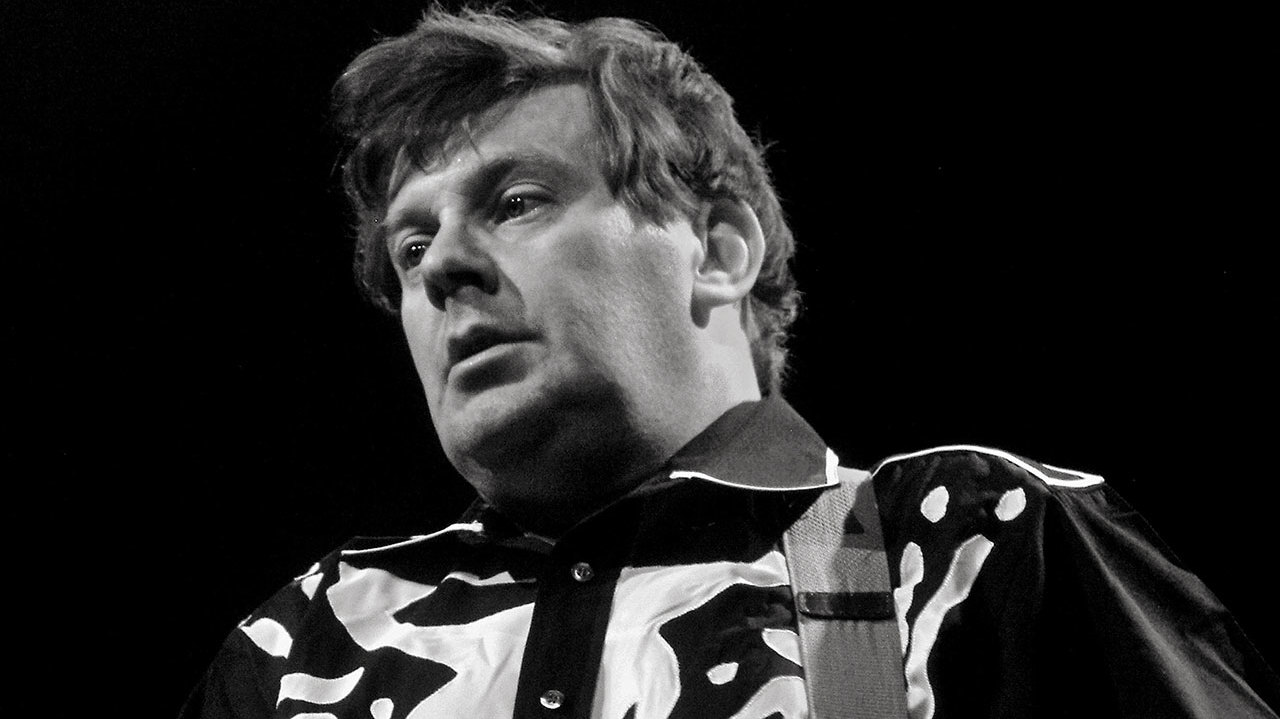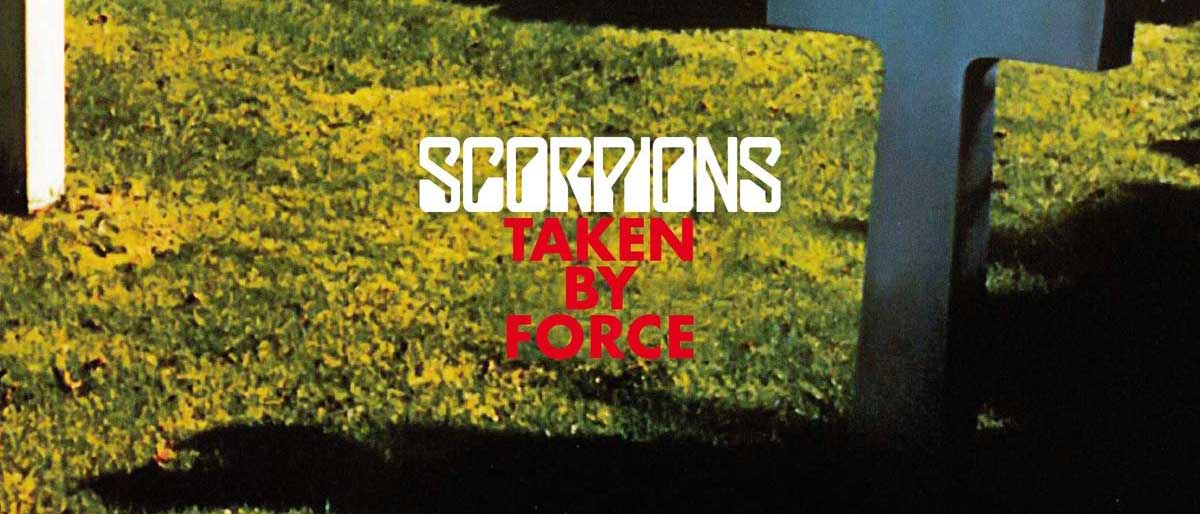Stiff Little Fingers' Jake Burns: We’re like a slightly groovier version of M&S"
The Stiff Little Fingers frontman on punk, politics, SLF’s re-formation and how he’d happily go to a Kiss show

Select the newsletters you’d like to receive. Then, add your email to sign up.
You are now subscribed
Your newsletter sign-up was successful
Want to add more newsletters?

Every Friday
Louder
Louder’s weekly newsletter is jam-packed with the team’s personal highlights from the last seven days, including features, breaking news, reviews and tons of juicy exclusives from the world of alternative music.

Every Friday
Classic Rock
The Classic Rock newsletter is an essential read for the discerning rock fan. Every week we bring you the news, reviews and the very best features and interviews from our extensive archive. Written by rock fans for rock fans.

Every Friday
Metal Hammer
For the last four decades Metal Hammer has been the world’s greatest metal magazine. Created by metalheads for metalheads, ‘Hammer takes you behind the scenes, closer to the action, and nearer to the bands that you love the most.

Every Friday
Prog
The Prog newsletter brings you the very best of Prog Magazine and our website, every Friday. We'll deliver you the very latest news from the Prog universe, informative features and archive material from Prog’s impressive vault.
Exploding out of Belfast and breathing new life into a flagging punk scene, Stiff Little Fingers – fronted by raw-throated firebrand Jake Burns – saw their debut album Inflammable Material album reach the UK Top 20 in 1979. After four years of unflinching ferocity, drafting a politicised street-punk blueprint and Top Of The Pops bans, SLF split into acrimony. Since re-forming in ’87 the band have thrived, and celebrate their 40th anniversary with imminent back-to-back tours of Europe, America, Australasia and Japan.
We caught up with Jake Burns at his home in Oregon to talk Trump, T-shirts and Tush.
Prior to SLF you were in rock covers band Highway Star. What else was in your set list?
Bizarrely, we never played Highway Star. It was too damned difficult. We played a lot of Rory Gallagher stuff. He was my initial inspiration. Messing With The Kid… I may have even tried to stumble my way through Walk On Hot Coals, though it was a bit above my pay grade at the time. ZZ Top’s Tush… We only played three shows.
Did the DIY element of punk particularly chime in Belfast because of the rarity of rock tours that visited the city throughout The Troubles?
Very much so. When we first got into rock music we were used to bands bypassing Northern Ireland. We reckoned the only way we were ever going to hear rock music played live was to do it ourselves.
Presumably that feeling of abandonment stoked the resentment at the heart of all punk?
Sign up below to get the latest from Classic Rock, plus exclusive special offers, direct to your inbox!
It certainly added to it. You’d read interviews with The Clash, Pistols and Damned all saying how bored they were, and there was three or four bands we’d have killed to see playing London every night. We were lucky to get a band every two or three months. The punk bands didn’t seem bothered by what was happening and the vast majority did come over to play. That was the beginning of the end of people being afraid to come across.
Is today’s internet as effective in disseminating exceptional new music as John Peel was?
The internet’s useful in terms of getting everything out there, but it needs a filter. A vast number of us trusted Peel when it came to musical taste, and knew he’d sift through all the stuff to only play the stuff worthy of our attention. With the internet there’s no filter.
Hearing SLF’s 1978 single Suspect Device/Alternative Ulster on John Peel’s radio show, it put a lot of contemporary punk to shame. Its fury seemed to breath new life into a dying scene.
Belfast was a backwater in those days, so we were always going to be playing catch-up. That was our initial burst of anger, comparable to the initial bursts on the mainland and in New York. But I tend to agree with you. When I first heard punk, though I thought it was great and really exciting, I never saw it as anything more than a short, sharp shock. I didn’t see how anybody could sustain a career. Nobody can stay that angry. Shock for shock’s sake isn’t sustainable. That’s how I saw punk until I heard The Clash properly. White Riot was an indistinct two minutes of exciting noise, but when I got the album and heard what they were singing about, it wasn’t shock for shock’s sake.
SLF’s break-up was provoked by much acrimony. Were serious reparations necessary before the ’87 reunion tour?
We were pulling in four different directions when we split, but being broke had a lot to do with putting aside old differences. We honestly expected to re-form, play a couple of clubs and get a free ride back to Ireland for Christmas, but as it was, thousands of people wanted to see us, the whole thing took on a life of its own again and we’re now celebrating our fortieth year. I definitely didn’t see that coming.
Is rock music that’s not politicised, kicking against the establishment, asking difficult questions or trying to make a difference doing its job?
Yeah. There’s an argument to be made for simply being entertainment. I mean, I’d never willingly own a Kiss record, but I’d happily go and see them for an evening. It’s pantomime, it’s fun.
What repercussions do you see Brexit having on what you do?
It’s going to make touring Europe more bureaucratic, difficult and expensive. I imagine there’ll be an increase in import tax on T-shirts and all the stuff that today’s bands basically rely on to live. The price of hotels, petrol, vehicle hire, crew has all gone up. We’ve had to look for other ways to make the job viable, so like most bands we’ve become like a slightly groovier version of Marks & Spencer. You make more money from T-shirts than records or tickets.
With the nature of the music industry changing and gaps between albums widening, does it make it harder to keep songs as immediate, hard-hitting and relevant as when you were contracted to an album a year?
Yeah, you either dump or modify songs as time passes. When I wrote the Irish songs on the first record, I hoped they’d become like old folk songs. Then on the second album, songs started concerning themselves with the Thatcher years. Now there are too many things to complain about, and I don’t want to end up singing the daily newspaper, which is a trap you can fall into, especially in my position.
Are you optimistic for the future? Have we built a better world that’s less sectarian, bigoted, divided and misogynistic?
If you’d asked me that last year I’d have probably said yes, but I’ve since realised people with racist and sectarian views were always there. The success of the Brexit and Trump campaigns have emboldened these people to come out into the open. It’s almost as if they’ve been given permission and an indication that this stuff is acceptable now. It’s more transparent now the veil of decency has been stripped away, and I’m not sure I like what I’m seeing.
Best Served Loud: Live At Barrowlands is out now via Edel.
Stiff Little Fingers - Best Served Loud! Live At Barrowland album review
The 10 Best Stiff Little Fingers Songs by Ricky Warwick
Why Stiff Little Fingers’ Paris gig had to go ahead – By Jake Burns

Classic Rock’s Reviews Editor for the last 20 years, Ian stapled his first fanzine in 1977. Since misspending his youth by way of ‘research’ his work has also appeared in such publications as Metal Hammer, Prog, NME, Uncut, Kerrang!, VOX, The Face, The Guardian, Total Guitar, Guitarist, Electronic Sound, Record Collector and across the internet. Permanently buried under mountains of recorded media, ears ringing from a lifetime of gigs, he enjoys nothing more than recreationally throttling a guitar and following a baptism of punk fire has played in bands for 45 years, releasing recordings via Esoteric Antenna and Cleopatra Records.
